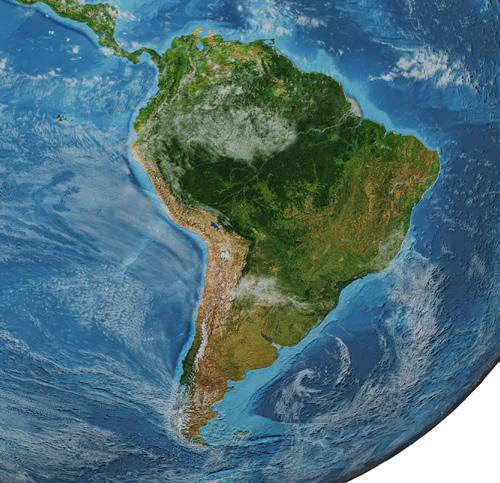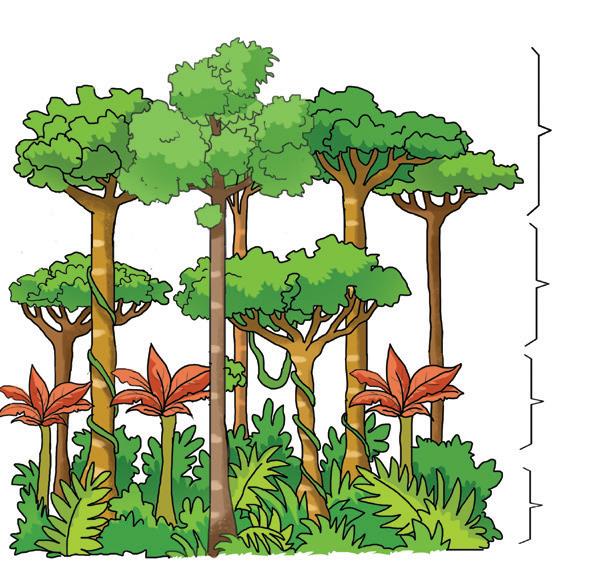Year 4 Unit 1: Amazon: Rivers and Rainforests Knowledge organiser
South America
South America is a continent in the southern hemisphere that has 12 countries and one territory.
In South America, each country has its own capital city and population. There are also different:
• languages
• religions
• types of money
• climates
• exports.
Physical geography - the natural world.
Human geography - the impact that humans have on the natural world.
Rainforests
A tropical rainforest is an area along the equator with tall evergreen trees, high temperatures, and rainfall.
Emergent layer
Canopy layer
Understory layer Forest floor
Each layer gets different amounts of sunlight and water.
Rivers
Rivers are an important part of the water cycle. They are a natural habitat for plants and animals. Humans also use them for transport, agriculture, and energy.
Rivers cause land erosion
The eroded rock and soil is deposited
Erosion and deposition create meanders
Meanders can form oxbow lake
• Many animals have adapted to live in the rainforest.
• Their features depend on which layer they live in.
• Some animals move between the layers.
The Amazon
The Amazon Rainforest is the largest tropical rainforest in the world. It is home to many different indigenous people and animals.
People
• Some people live in different tribes. Many are known to us and others are still uncontacted.
• The Yanomami tribe is the largest. Harm
• Deforestation - large areas of trees cut down so the land can be used. People and animals can lose their homes.
Channel
Oxbow
Lake
Mouth Delta
Confluence
Source
Levee
Meander
Year 4 Unit 1: Amazon: Rivers and Rainforests Useful vocabulary
Word Definition
agriculture
ancestors
camouflage
clearing
climate
continent
dam
deciduous
Equator
erosion
evaporate
evergreen
hemisphere
Agriculture is farming, or growing food on the land.
A person who lived in the past and was in the same family as someone alive now.
If something is camouflaged, it is hidden because it looks very like the things around it.
An open space in a wood or forest.
The climate that a place has is the sort of weather that it has.
A continent is one of the seven very large areas of land in the world
A dam is a wall that is built across a river to hold water back.
A deciduous tree loses its leaves in autumn.
The equator is an imaginary line around the middle of the Earth.
Erosion is the wearing away of the Earth’s surface.
When water evaporates, it changes into a gas and so disappears.
An evergreen is a tree that keeps its green leaves all year.
Half the earth, divided into north and south.
Word Definition
human
humid
mouth
precipitation
predator
prey
rainfall
reservoir
river
source
territory
trade
A human is a man, woman, or child.
Humid air or weather is damp and warm.
The mouth of a river is the place where it flows into the sea.
Precipitation is water that falls to the ground as rain.
A predator is an animal that hunts and kills other animals for food.
An animal’s prey is the animal that it hunts and kills.
Rainfall is the amount of rain that falls in a particular place or time.
A reservoir is a big lake that has been built to store water in.
A river is a large stream of water that flows into the sea.
The source of something is the place where it comes from or the place where it starts.
A place ruled by another country.
When people do trade, they buy and sell things.


